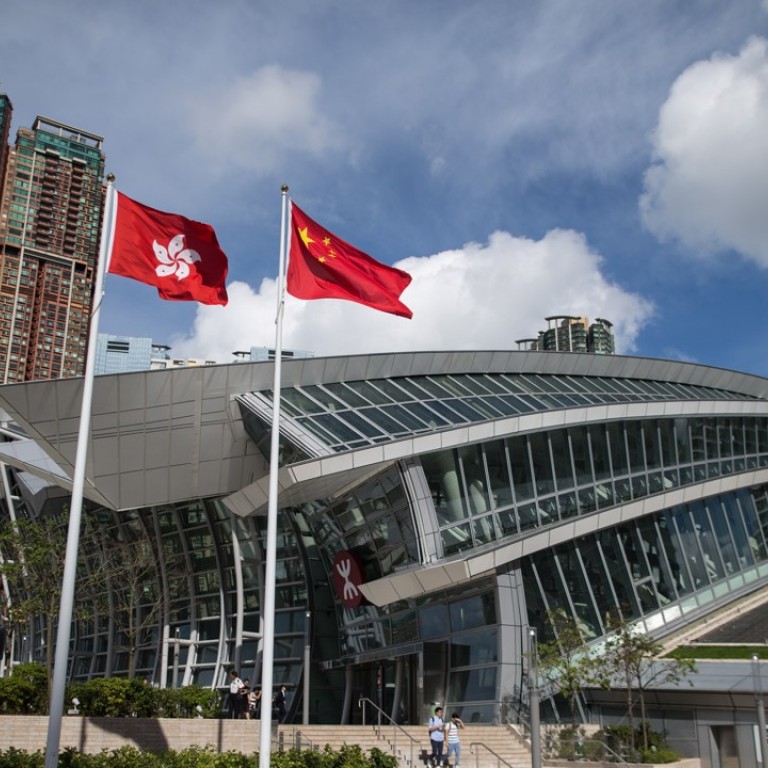
Mainland Chinese port area in Guangzhou-Shenzhen-Hong Kong Express Rail Link terminus embodies ‘one country, two systems,’ city’s lawyer says
- Barrister arguing case for government in judicial review says court should not ignore China’s top legislative body’s blessing towards immigration set-up at West Kowloon
A Hong Kong government lawyer told the High Court on Wednesday it should not ignore China’s top legislative body’s blessing towards the mainland port at the city’s new high-speed rail terminus.
But Benjamin Yu SC also argued the high degree of autonomy provided by the city’s mini-constitution, the Basic Law, empowered the controversial co-location arrangement currently subjected to four judicial review applications to scrutinise its constitutionality.
‘Monster’ co-location plan damaged ‘one country, two systems’, court told
“The whole Basic Law confers, as a whole, to the [special administrative region] a very high degree of autonomy which empowers the Special Administrative Region to do this – now with the sanction of the National People’s Congress Standing Committee,” Yu said. “Any sensible lawyer would have taken on board the NPCSC decision and found it persuasive.”
The applicants’ counsel, however, were not satisfied with his reply, countering the government had stopped short of saying the NPCSC decision last December, which said the arrangement was in line with the Basic Law, was binding on Hong Kong or equivalent to an interpretation.
Martin Lee Chu-ming SC accused the government of bowing to Beijing in advance of any interpretation, which could be prompted by the Court of Final Appeal if the present legal challenge was brought to a higher court for clarification.
To this, Yu replied: “Someone who has a dose of common sense would ask, ‘If this matter is going to be in the position of the ultimate interpreter, why would the Court of First Instance ignore it and pay no regard to it?’”
The counsel for the government said if there was an interpretation of the Basic Law, it would certainly involve articles 18 and 19, which respectively state that national law does not apply in the city and that courts have jurisdiction over all cases within the region.
He said the two articles should be construed in context, with the purpose of ensuring the separation of two systems to allow the implementation of “one country, two systems”, adding: “One knows articles 18 and 19 do not expressly prohibit the setting up of co-location arrangement.”
Assuming the United States government were to require passenger clearance at the point of departure in Hong Kong, Yu said the arrangement would “certainly be permissible” so long as Beijing approved.
“It is a clear manifestation of ‘one country, two systems’ that you have immigration control for people moving between Hong Kong and the mainland, ” he said.
“If there was only ‘one country, one system’ one would not even need a mainland port area. To say the arrangement creates an exclave where there is ‘one country, one system’ is simply looking at this area without context.”
Mr Justice Anderson Chow Ka-ming will hand down his decision on a later date.
The four applicants are Chinese University master’s student Hendrick Lui Chi-hang, Kwok Cheuk-kin and ousted pro-democracy lawmakers Sixtus Baggio Leung Chung-hang and “Long Hair” Leung Kwok-hung.
A fifth applicant, NeoDemocrats member Jeff Ku Chun-hin, dropped out from the case.

